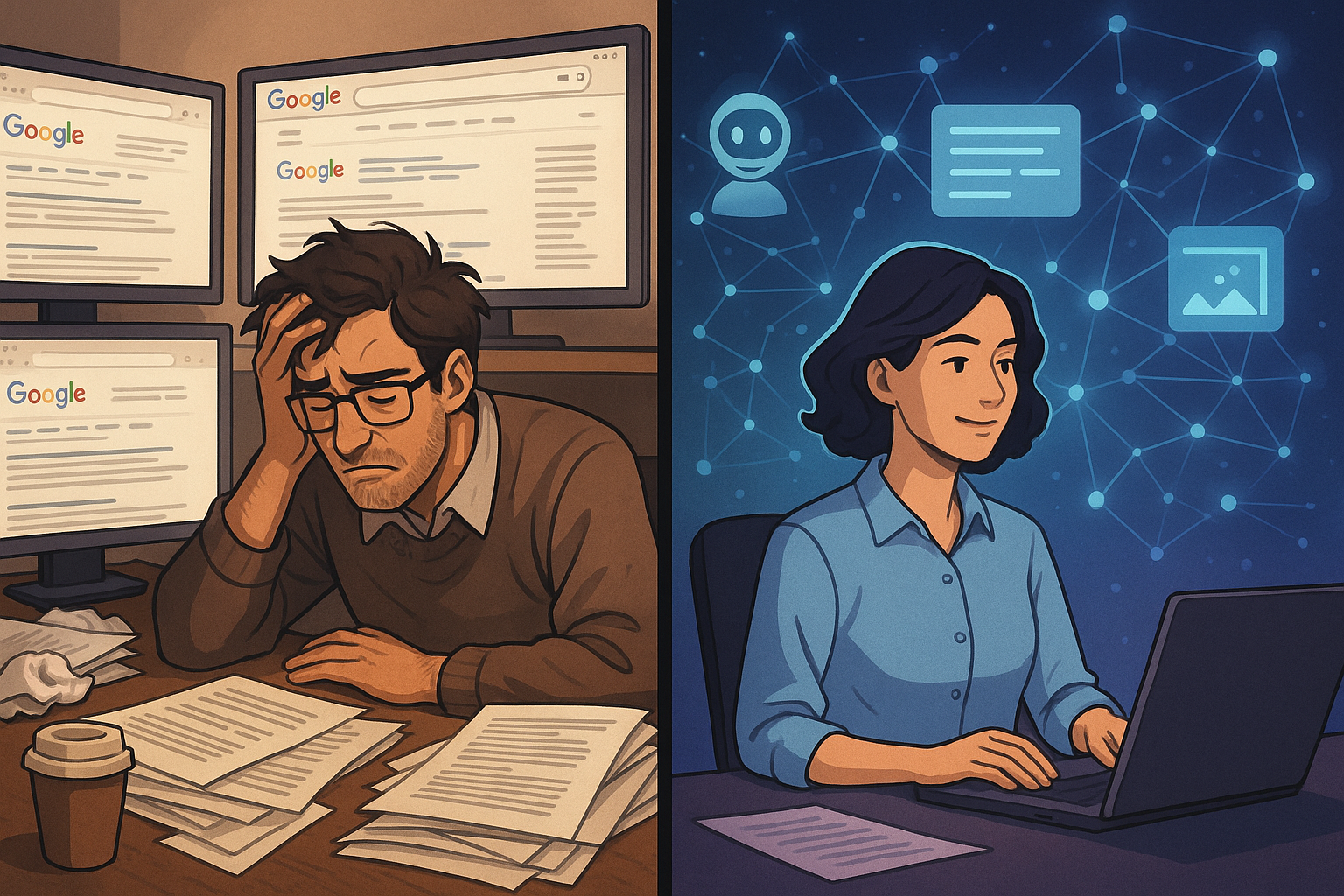For decades, “doing research” meant hours on Google Scholar, chasing citations across paywalls, and drowning in PDFs you’d never finish reading. But the reality is clear: the old way of finding papers is broken. AI tools for research are not just a convenience anymore—they’re reshaping how knowledge is discovered, read, and connected. And clinging to traditional methods might actually be slowing you down.
The Problem with the Old Search Habits
Let’s be honest: typing random keywords into Google or Google Scholar is more about luck than strategy. You’ll find a flood of results, but how often are they relevant? How often are they accessible? Even worse, many critical insights get buried because they don’t match your exact phrasing. In an age where “smart academic AI search” exists, this inefficiency looks more like stubbornness than diligence.
What AI Research Tools Actually Do
Modern AI-powered research websites go beyond keyword matching. They can:
-
Find references automatically, surfacing the most relevant papers even if you didn’t know the right jargon.
-
Show you similar research papers instantly, instead of leaving you to manually comb through citations.
-
Summarize PDFs so you don’t have to slog through 40 pages just to figure out if it’s useful.
-
Offer free research AI services that rival (and sometimes beat) subscription databases.
Think of it as moving from a shovel to an excavator: the goal is still digging, but the efficiency gap is massive.
Why This Matters for Students and Researchers
If you’re still spending hours manually “reading papers” the old way, you’re burning time that AI could save you. Free AI tools for research already let you find references, generate literature maps, and even track evolving debates in real time. For undergrads, this can mean finishing a term paper in half the time. For academics, it means focusing on arguments instead of clerical work.
And yes, some fear this will make researchers lazy. But the truth is, AI is doing what librarians and underpaid grad assistants used to do—it’s cutting the noise so you can actually think.
So What’s Next?
The real question isn’t whether AI can support research. It’s whether we’re ready to admit that our current rituals—Google Scholar tab-hoarding, endless citation trails, and hours wasted on irrelevant PDFs—are already obsolete. The future is about AI for research papers that’s free, fast, and smarter than the old gatekeepers.
